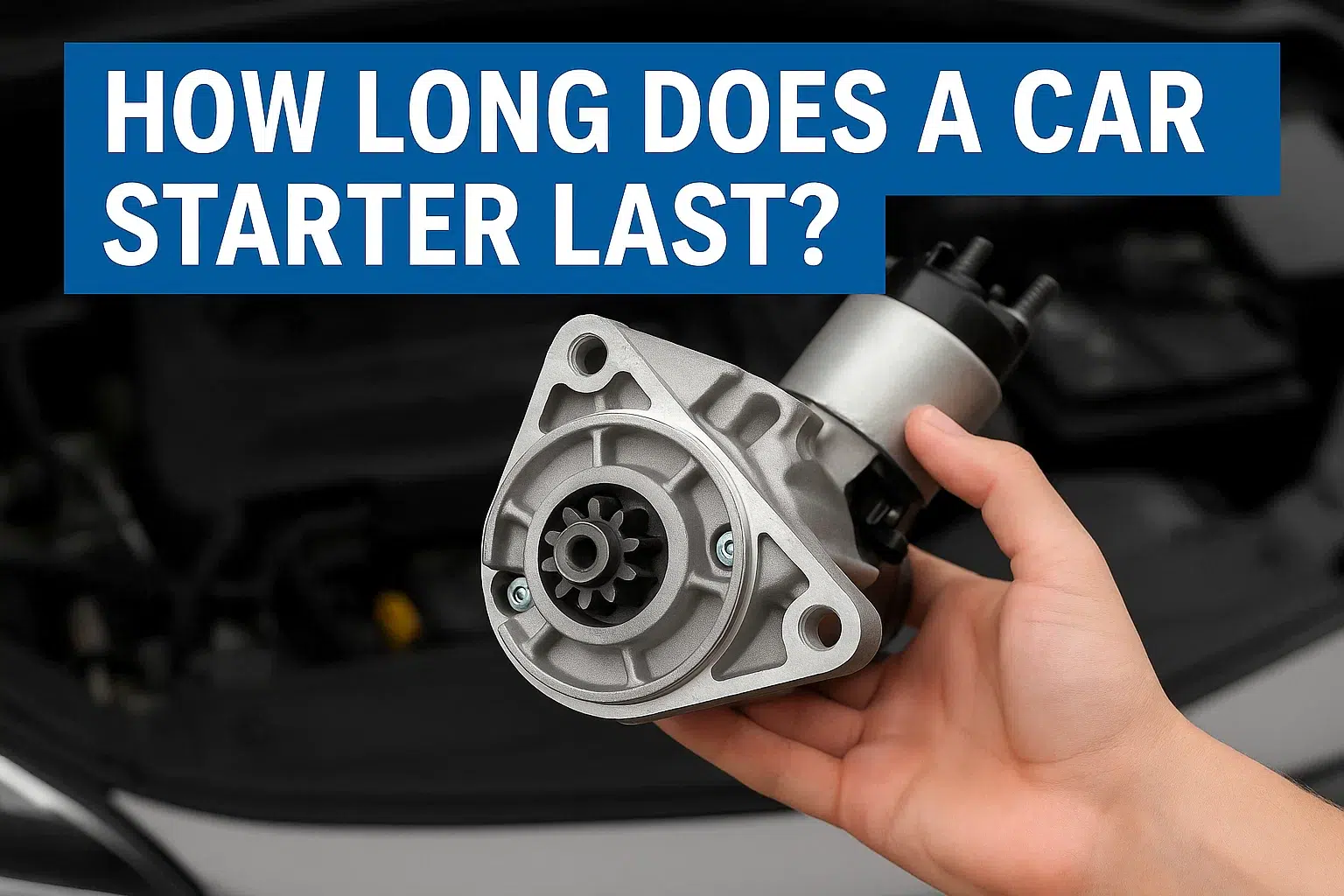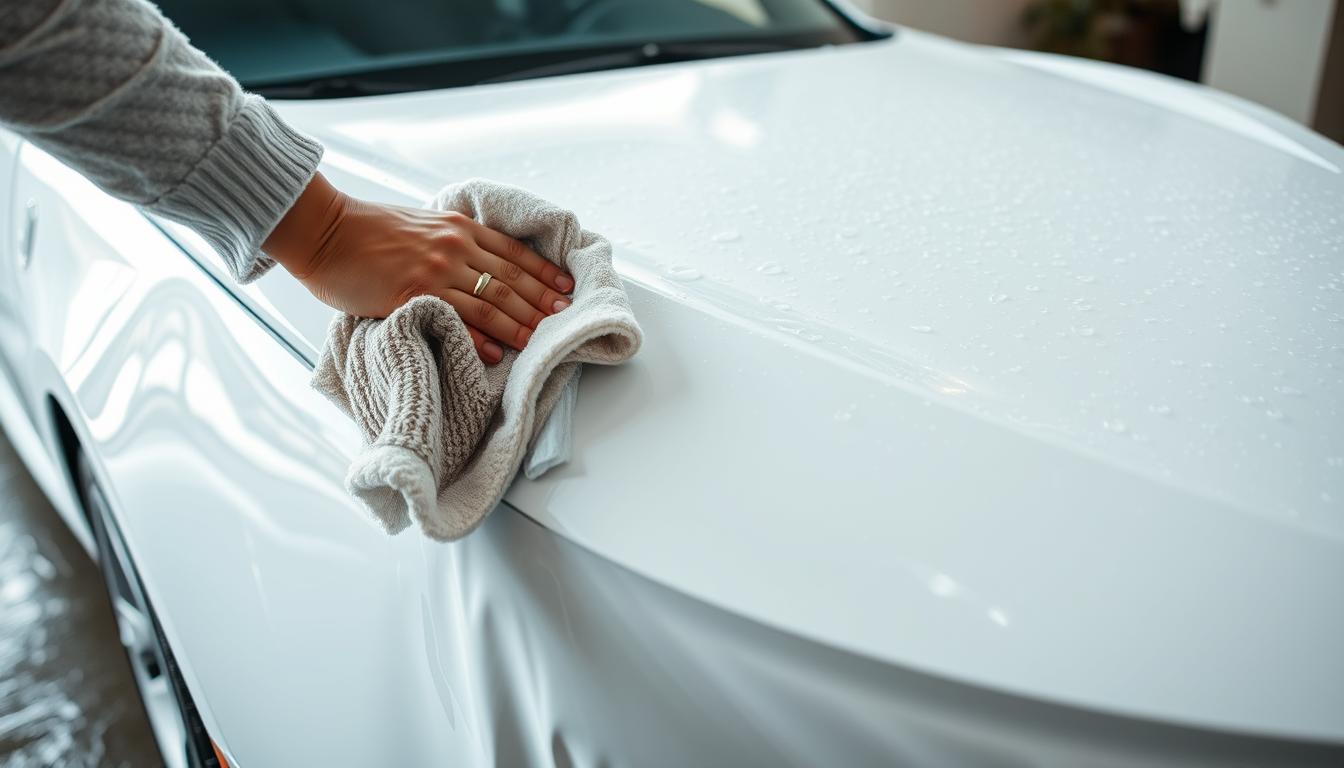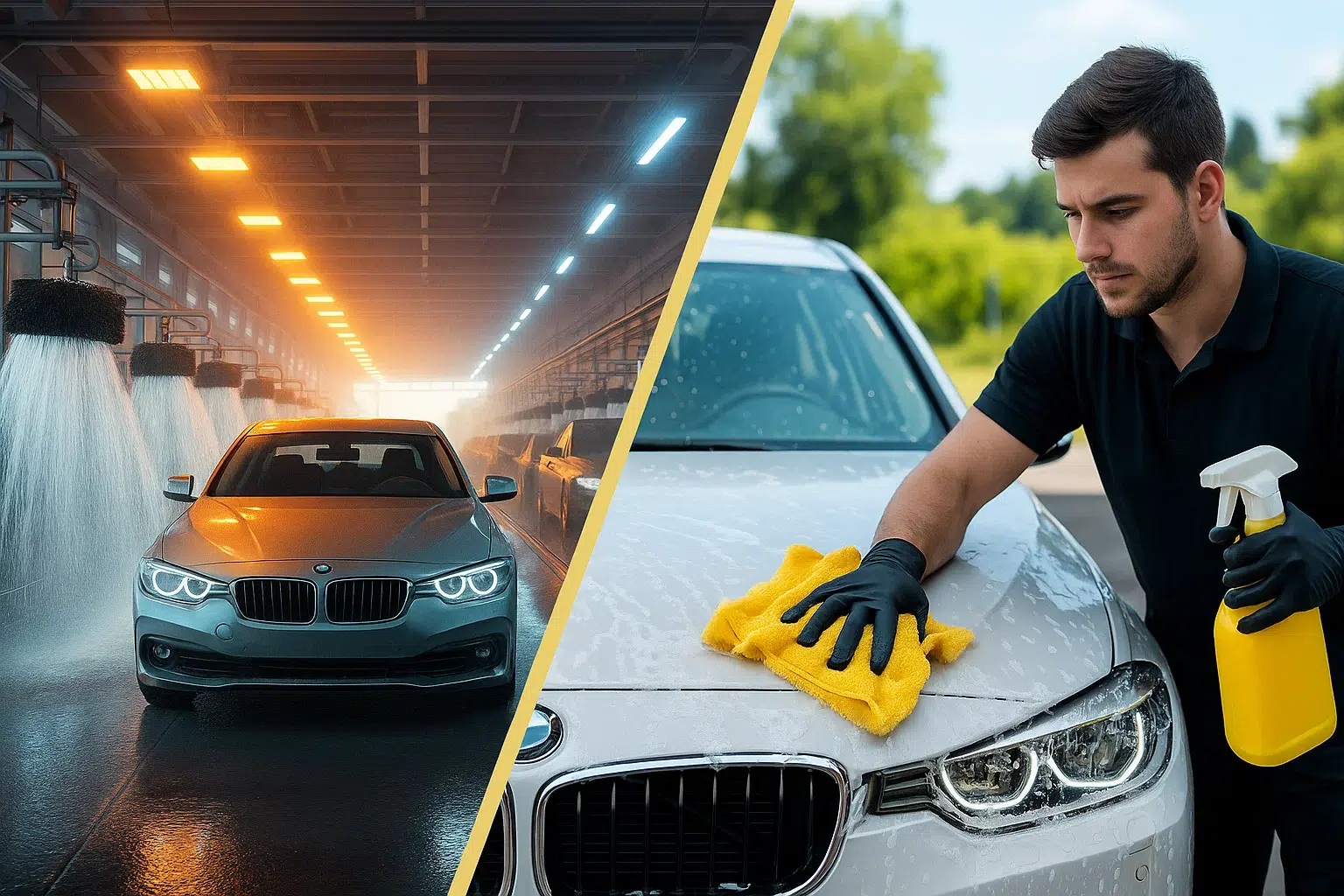Ever found yourself stuck with a dead car, wondering if the car starter is the problem?
This key part makes your engine start when you turn the key or press the ignition button. Knowing how long a car starter lasts is key to keeping your car running smoothly and avoiding sudden stops.
The average car starter longevity changes a lot. It depends on how you drive, how well you maintain it, and the starter’s quality.
Understanding Car Starters: Function and Importance
Knowing how a car starter works is key to seeing its role in starting your vehicle. A car starter is vital for starting your car. If it fails, you could be left without a way to start your car.
What Is a Car Starter and How Does It Work?
A car starter, or starter motor, is an electric motor that starts your car’s engine. It connects with the battery and ignition system. When you turn the key or press the ignition button, it turns the engine over.
The process involves several key components: the battery gives power, the ignition switch starts the starter, and the starter motor turns the engine, and the clutch engages to connect the engine to the transmission for smooth operation.
The Critical Role of Starters in Vehicle Operation
The starter’s role is essential because without it, your car won’t start. Modern cars need starters to start the engine. This makes starters a key part of your car’s electrical and mechanical systems.
| Component | Function |
|---|---|
| Battery | Provides power to the starter motor |
| Ignition Switch | Activates the starter motor |
| Starter Motor | Turns the engine over to start it |
Things like weather, how you drive, and your car’s type can affect the starter’s life. Knowing these can help keep your starter working longer.
How Long Does a Car Starter Last? Average Lifespan Expectations
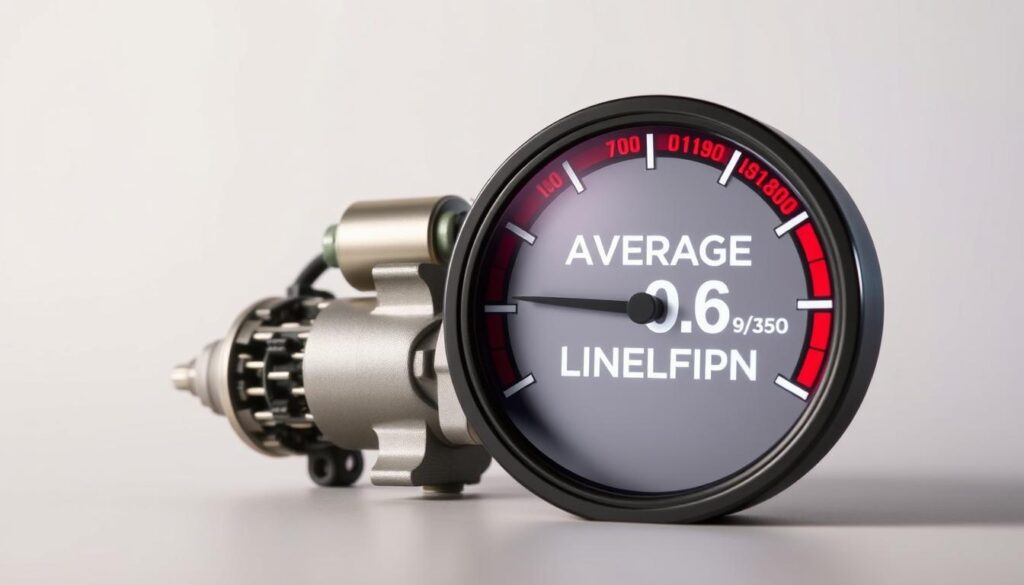
Knowing how long a car starter lasts is key for keeping your vehicle in top shape. The life of a car starter can change a lot. This depends on the car, how you drive, and how well you maintain it.
Typical Longevity Ranges for Modern Vehicles
A car starter usually lasts between 80,000 to 150,000 miles. This range varies based on the car’s make and model. Some starters might not last as long, while others can go further with the right care.
Key factors influencing starter longevity include:
- Quality of the starter motor
- Driving habits (frequent start-stop driving)
- Environmental conditions (extreme temperatures, moisture)
- Electrical system health
Variations in Starter Lifespan by Vehicle Type
The type of vehicle greatly affects its starter’s life. For example:
- Compact cars and sedans usually have average starter lifespans.
- SUVs, trucks and EVs like Big 0 Terramax Electric Car often have longer-lasting starters because of their strong electrical systems.
- High-performance vehicles might have shorter starter lifespans due to the extra strain.
Real-World Examples: Mazda CX-5, Mazda6, and Miata Starter Durability
Mazda cars are known for their dependability, and their starters are no different. Here’s a quick look at starter durability in some Mazda models:
| Model | Average Starter Lifespan | Common Issues |
|---|---|---|
| Mazda CX-5 | 100,000 – 120,000 miles | Occasional slow cranking |
| Mazda6 | 90,000 – 110,000 miles | Intermittent starting issues |
| Miata | 80,000 – 100,000 miles | Rare starter failures, mostly due to high RPM usage |
By knowing these factors and averages, car owners can better plan for starter replacements. This keeps their vehicle reliable and running smoothly.
Factors That Impact Car Starter Durability
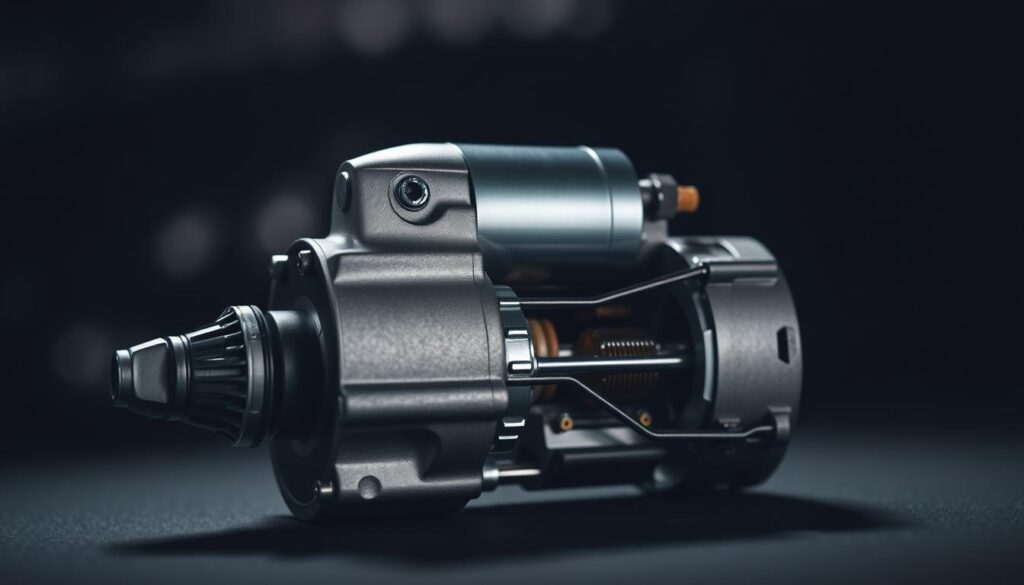
Knowing what affects your car starter’s life is key to keeping your vehicle in top shape. Many things can influence how long a starter lasts, like the weather, how you drive, and the car itself.
Environmental Conditions and Their Effects
The weather can really affect your car starter. Very hot or very cold temperatures can harm its performance and lifespan. For example, heat can wear down the starter’s electrical parts faster. Cold makes it harder for the starter to start the engine.
Key environmental factors include:
- Temperature extremes
- Moisture exposure
- Contaminant exposure (e.g., dust, debris)
Driving Habits That Strain Your Starter
How you drive can also hurt your starter, especially if you’re a pilot car driver. Short trips, for instance, can be tough because the battery doesn’t get to fully charge. This puts extra stress on the starter. Constantly starting and stopping the engine also shortens its life.
Habits to avoid:
- Frequent short trips
- Excessive engine start/stop cycles
- Ignoring starter-related issues
Vehicle-Specific Considerations
Every car is different when it comes to starter durability. For example, some Mazda models, like the Mazda6, have known starter problems.
Common Issues with 05/06 Mazda6 Starters
The 05/06 Mazda6 starters often fail early due to electrical and mechanical issues. Owners of these cars should watch their starter closely.
| Model Year | Common Issues | Potential Solutions |
|---|---|---|
| 2005 Mazda6 | Premature starter failure | Regular electrical system checks |
| 2006 Mazda6 | Starter motor grinding | Starter motor replacement |
Warning Signs of a Failing Car Starter
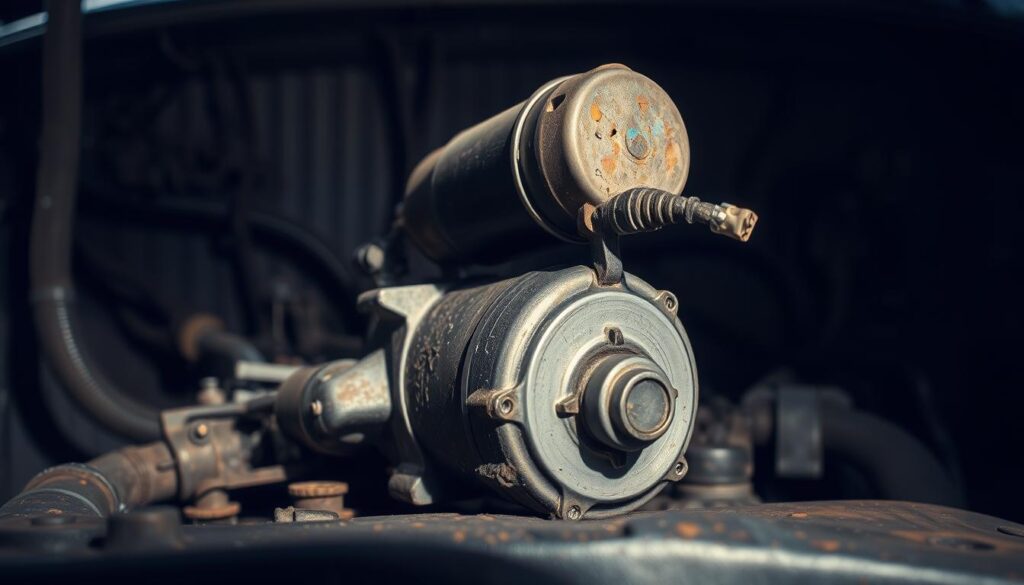
Knowing the signs of a failing car starter can prevent unexpected breakdowns. A failing starter might make unusual noises or perform erratically. These symptoms can help you catch problems early.
Audible Indicators: Clicking, Grinding, and Other Sounds
Unusual noises are a common sign of a failing starter. Clicking sounds when you turn the key or press the ignition button can mean a problem with the starter motor or its electrical circuit. Grinding noises might suggest that the starter gear is not engaging properly with the flywheel.
You might also hear a whirring or a loud clunking sound. These sounds can mean a worn-out or misaligned starter motor. If you notice these sounds, it’s important to find out why.
Performance Issues: Slow Cranking and Intermittent Starting
A failing starter can also show through performance issues. Slow cranking of the engine is a common symptom, where the engine takes longer than usual to start. This could be due to a weak starter motor or issues with the battery or electrical connections.
Intermittent starting is another red flag. If your car starts sometimes but not others, it could indicate a problem with the starter motor’s ability to engage the engine consistently. This inconsistency can be frustrating and is a clear sign that your starter needs attention.
Electrical Symptoms and Dashboard Warnings
Modern vehicles often have sophisticated electrical systems that can detect issues with the starter. Dashboard warning lights may illuminate if there’s a problem with the starter or its circuit. While these lights can indicate a variety of issues, they should not be ignored when accompanied by starter-related symptoms.
Other electrical symptoms can include dimming lights or accessories not functioning correctly when you try to start the car. These signs suggest that the starter is drawing more current than usual, potentially indicating a fault.
How to Diagnose Starter Problems
Diagnosing starter problems involves a combination of observation and simple tests. Start by checking the battery condition and connections, as a weak or corroded battery can mimic starter failure symptoms.
If the battery is in good condition, listen for the clicking or grinding noises when attempting to start the car. You can also try jumping the starter or having a professional mechanic perform a starter test to determine if it’s functioning correctly.
By being aware of these warning signs and taking proactive steps to diagnose issues, you can address car starter problems before they leave you stranded.
Extending Your Car Starter’s Lifespan: Maintenance Tips
Learning how to care for your car’s starter can prevent early wear and tear. This ensures your car starts without trouble. By following a few easy steps, you can make your starter last longer.
Proper Starting Techniques to Reduce Wear
Using the right starting methods can help your starter last longer. Don’t crank the engine for too long, as it can damage the starter. Instead, crank for a few seconds, then pause if it doesn’t start right away.
Also, make sure your car is in park or neutral before starting. This makes starting easier on the starter.
Key starting techniques include: avoiding excessive cranking, ensuring the vehicle is in the correct gear, and not ignoring warning signs like unusual noises.
Regular Electrical System Maintenance
The electrical system is key to your car’s starter working well. Regular checks can spot problems early. Keep your battery terminals clean and check your battery often. A weak battery can strain the starter and shorten its life.
| Maintenance Task | Frequency | Benefit |
|---|---|---|
| Check Battery Condition | Every 6 months | Prevents strain on the starter |
| Clean Battery Terminals | Every 3 months | Ensures good electrical connection |
| Inspect Starter Connections | Annually | Reduces risk of starter failure |
Seasonal Care for Optimal Performance
Seasons can affect your car’s starter in different ways. In cold weather, make sure your battery is fully charged. In hot weather, watch for overheating signs that can harm the starter. Check your starter and electrical system before extreme weather to keep it running well.
By following these tips, you can extend your car starter’s life. This means fewer breakdowns and less need for expensive repairs. Regular care of your vehicle’s electrical system is key to a long-lasting starter motor.
Also, if your car needs any other type of repair, such as car scratch repair or hail damage repair, be sure to check out our recent blogs on these topics, I assure you’ll find them incredibly useful.
Car Starter Replacement: When and How
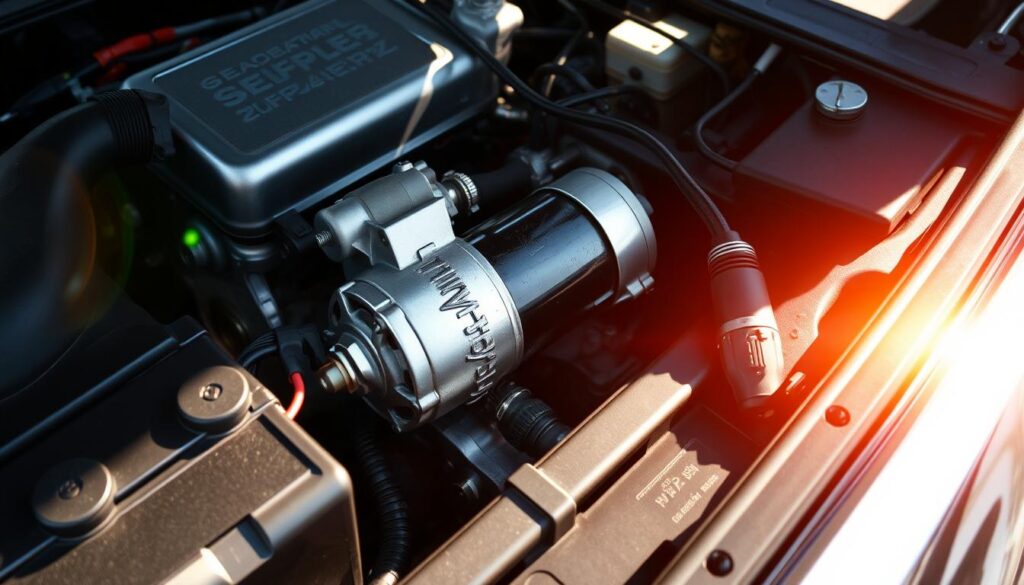
Knowing when and how to replace your car’s starter is key to keeping your vehicle running well. Replacing a starter might seem hard, but it can be broken down into simple steps.
Determining the Right Time for Replacement
It’s important to know when to replace your car starter. Signs it’s failing include clicking or grinding noises when you turn the key. You might also notice slow cranking or starting issues that come and go.
If you see these signs, it’s a good idea to have a mechanic check your starter. They can tell if it needs to be replaced.
Starter Replacement Costs and Options
The cost to replace a car starter varies a lot. It depends on the starter type and labor costs. On average, a new starter motor can cost between $50 and $300.
New vs. Used Starters
When replacing your starter, you can choose between new or used. New starters come with a warranty and are less likely to fail early.
Used starters are cheaper but might not have a warranty. They could also not last as long.
OEM vs. Aftermarket Options (Including TYC Starters)
Another choice is between an OEM starter and an aftermarket one. OEM starters are made to match your original and are guaranteed to fit.
Aftermarket starters, like those from TYC, are more affordable. They offer good quality without breaking the bank. It’s important to compare different options to find the best deal.
| Starter Type | Cost Range | Warranty |
|---|---|---|
| New Starter | $50-$300 | Full Warranty |
| Used Starter | $20-$150 | No Warranty/Limited |
| OEM Starter | $100-$300 | Full Warranty |
| Aftermarket Starter (TYC) | $50-$200 | Varies by Manufacturer |
Professional vs. DIY Replacement Considerations
Replacing a car starter can be done by yourself if you have basic mechanical skills. But, if you’re not sure, it’s best to get a professional mechanic to do it.
They can make sure the job is done right and quickly. This saves you time and avoids any headaches.
Conclusion
Knowing how long a car starter lasts is key for keeping your vehicle in top shape. Environmental conditions, driving habits, and the type of vehicle all play a role. For examrple, Mazda CX-5 owners often see their starters last a long time without problems.
When it’s time to replace a starter, think about the cost and what’s available. For a 2005 Mazda6, finding the right starter is vital for good engine performance. Also, if you’re upgrading your LT1 engine with performance parts, make sure they work with your starter motor.
Using the right starting techniques and keeping your electrical system in check can help your starter last longer. Regular checks and timely replacements will keep your car running well. This way, you’ll get the most out of your starter.

I am Tushar Balchandani, founder of Car Info Expert and someone who has been working extensively in the car industry as a car expert for 15 years. My aim is to provide useful truthful and reliable information to the readers based on my real experiences and hands-on experience. From buying tips to maintenance guides, I help readers make confident car-related decisions.

